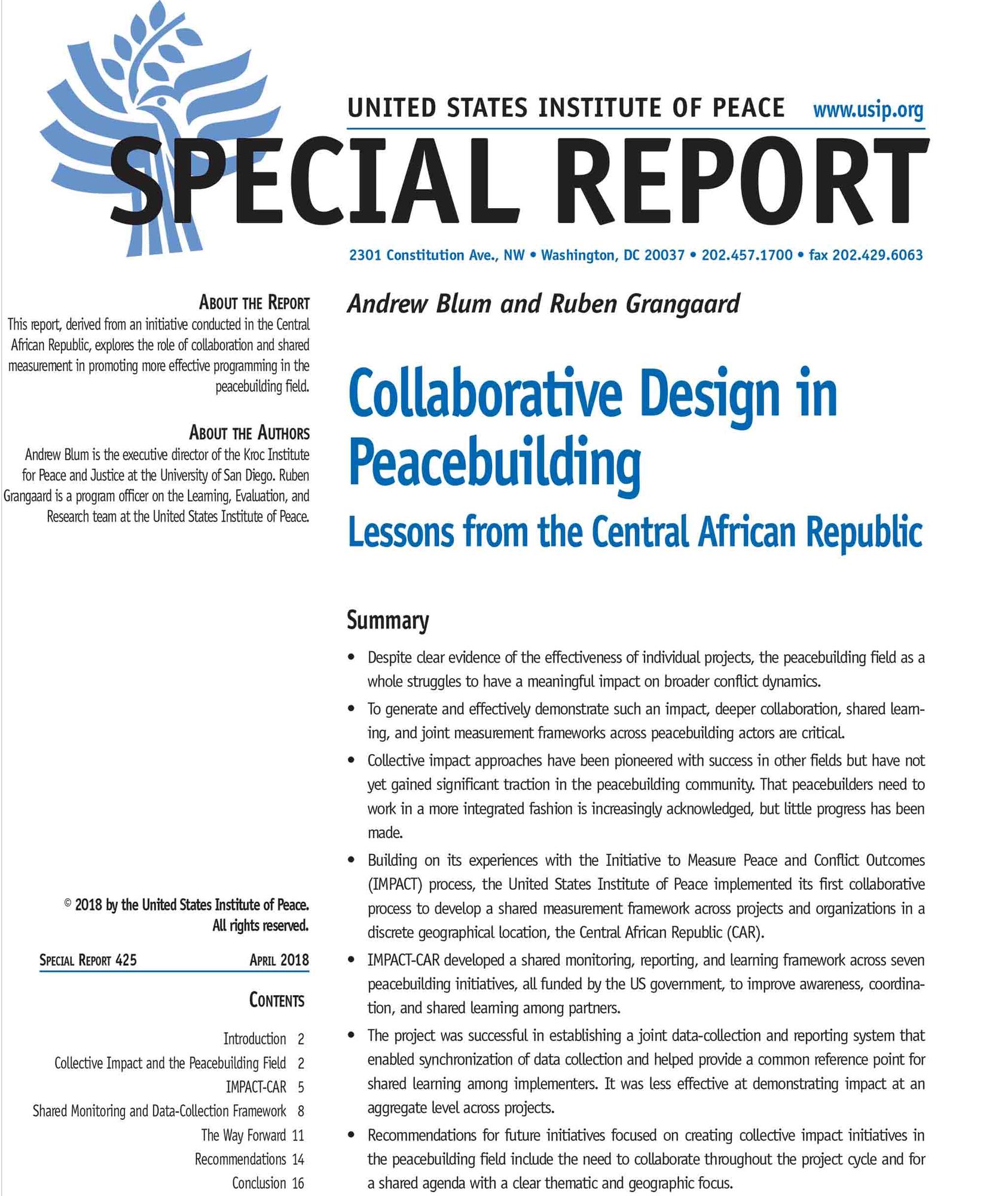Lessons from the Central African Republic
Despite clear evidence of the effectiveness of individual peacebuilding efforts, the field as a whole often struggles to have a meaningful collective impact on broader conflict dynamics. This report, drawing on a pilot initiative in the Central African Republic—IMPACT-CAR—to develop a shared measurement and reporting system aimed at improving collaboration and shared learning across peacebuilding implementers, reflects on the results, successes, and challenges of the initiative to offer a road map for future initiatives focused on collective impact in the peacebuilding field.
Summary
- Despite clear evidence of the effectiveness of individual projects, the peacebuilding field as a whole struggles to have a meaningful impact on broader conflict dynamics.
- To generate and effectively demonstrate such an impact, deeper collaboration, shared learning, and joint measurement frameworks across peacebuilding actors are critical.
- Collective impact approaches have been pioneered with success in other fields but have not yet gained significant traction in the peacebuilding community. That peacebuilders need to work in a more integrated fashion is increasingly acknowledged, but little progress has been made.
- Building on its experiences with the Initiative to Measure Peace and Conflict Outcomes (IMPACT) process, the United States Institute of Peace implemented its first collaborative process to develop a shared measurement framework across projects and organizations in a discrete geographical location, the Central African Republic (CAR).
- IMPACT-CAR developed a shared monitoring, reporting, and learning framework across seven peacebuilding initiatives, all funded by the US government, to improve awareness, coordination, and shared learning among partners.
- The project was successful in establishing a joint data-collection and reporting system that enabled synchronization of data collection and helped provide a common reference point for shared learning among implementers. It was less effective at demonstrating impact at an aggregate level across projects.
- Recommendations for future initiatives focused on creating collective impact initiatives in the peacebuilding field include the need to collaborate throughout the project cycle and for a shared agenda with a clear thematic and geographic focus.
About the Report
This report, derived from an initiative conducted in the Central African Republic, explores the role of collaboration and shared measurement in promoting more effective programming in the peacebuilding field.
About the Authors
Andrew Blum is the executive director of the Kroc Institute for Peace and Justice at the University of San Diego. Ruben Grangaard is a program officer on the Learning, Evaluation, and Research team at the United States Institute of Peace.
